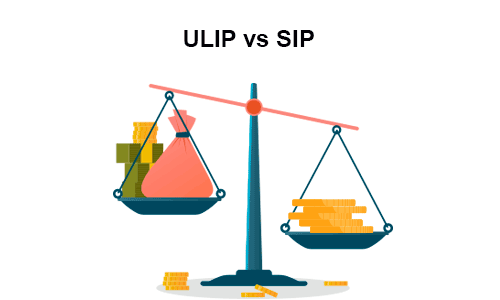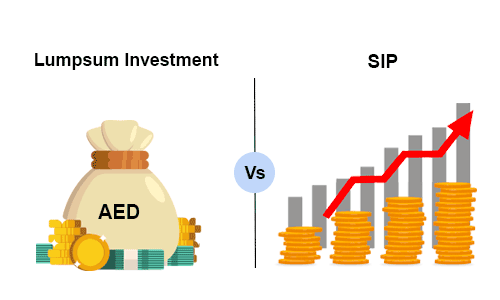ETF vs Mutual Fund - A Comparison
In India, multiple investment options are available, each with its own set of features and benefits. Among the plethora of choices, mutual funds and ETFs stand out as two popular investment vehicles. This, however, often leads to an ETF vs Mutual Funds debate!
While ETFs, or Exchange Traded Funds, are known for their flexibility and low expense ratios, mutual funds are preferred by those who seek professional management of their investment portfolio.
The question then arises — which is the better option for you?
Table of Content
In the following article, we will explore the differences between ETFs and mutual funds, highlighting the key aspects that set them apart.
What are Mutual Funds?
In mutual funds, a professionally managed portfolio is created by pooling funds from various investors. The funds are invested in a diversified basket of stocks, debt securities, or other assets. The fund manager makes informed decisions on which sectors and securities to invest in to maximise returns for the investors.
When you purchase a unit of a mutual fund, you are essentially buying a fraction of the portfolio’s securities. The returns on your investment are reflected in the Net Asset Value (NAV) of the fund, which is calculated at the end of each trading day and varies with the prices of the underlying securities.
Key Features of Mutual Funds
- Mutual funds are managed by experienced fund managers and research analysts who make informed investment decisions on investors’ behalf.
- Mutual funds provide access to a diversified portfolio of securities, thereby diversifying investment and reducing risk.
- Mutual fund units can be easily redeemed for cash, providing liquidity to the investors.
- Mutual funds are accessible to all types of investors, regardless of their investment experience or capital.
- Mutual funds are regulated and provide regular updates on the performance and holdings of the fund.
Key Advantages of Mutual Funds
- Fund managers with expertise and experience handle investment decisions. This saves you the time and effort required for research and analysis.
- The diversification of the portfolio reduces the overall risk exposure of the investors.
- Mutual funds provide a convenient way to invest in a wide range of securities with a single purchase.
- Investors can choose from a variety of mutual fund schemes based on their investment objectives and risk tolerance.
- Certain types of mutual funds, such as income or dividend funds, provide regular income to investors through periodic dividends.
What are ETFs?
An Exchange Traded Fund (ETF) is a type of mutual fund that pools money from multiple investors to invest in a variety of assets, such as equity, debt, and gold. While ETFs have a structure and management style similar to mutual funds, they are different as they can be traded on stock exchanges like individual stocks.
ETFs follow the principle of passive investing, meaning they mirror the performance of a specific index, rather than trying to outperform it. ETFs are similar to close-ended mutual funds, where all the funds are raised initially and then invested in stocks that reflect the benchmark index.
Key Features of ETFs
- ETFs can be bought and sold on stock exchanges just like individual stocks.
- ETFs aim to replicate the performance of a specific index instead of trying to beat it.
- ETFs can be based on a range of asset classes including equity, debt, and gold.
- ETFs have a structure and management style similar to mutual funds.
- Similar to close-ended mutual funds, ETFs raise all their funds initially and then invest them in stocks that mirror the benchmark index.
Key Advantages of ETFs
- ETFs can be traded on stock exchanges, providing higher liquidity compared to some other investment options.
- ETFs typically have lower expense ratios than actively managed mutual funds.
- The holdings of ETFs are disclosed daily, providing greater transparency for investors.
- ETFs offer the flexibility to invest in a wide range of asset classes.
- ETFs are structured in a way that allows investors to have more control over their capital gains tax liabilities.
Differences Between ETFs and Mutual Funds
Let’s take a closer look at the differences between ETFs and mutual funds in the table below -
| Parameters | ETFs | Mutual Funds |
|---|---|---|
| Trading | Traded on stock exchanges like a stock | Bought and sold at the end of the trading day based on the fund's net asset value |
| Management Style | Passively managed, typically tracking an index | Actively managed by professional fund managers |
| Expense Ratios | Generally lower than mutual funds | Generally higher than ETFs |
| Minimum Investment | Can be as low as the price of one share | May have a minimum investment requirement |
| Liquidity | High — can be bought and sold throughout the trading day | Lower — can only be bought or sold at the end of the trading day |
| Shareholder Ownership | Own a portion of the fund's assets, but don’t own the underlying securities | Own a portion of the fund's assets and the underlying securities |
ETFs vs Mutual Funds – How to Choose the Right One?
Choosing between ETFs and mutual funds can be a challenging decision, as both have their own advantages and disadvantages. Here are some points to help you make the right choice -
- Investment Goals: If you are looking for specific investment outcomes, a mutual fund may be a better option as it is managed by professionals who can make informed decisions on your behalf.
- Risk Tolerance: Assess your willingness to take risks. ETFs can be more volatile since they are traded like stocks, whereas mutual funds tend to be more stable.
- Management Style: Examine whether you want to actively manage your investment or leave it to the professionals. If you prefer a hands-off approach, a mutual fund may be a better fit as it is managed by professional fund managers.
- Cost: Compare the costs associated with each option. ETFs typically have lower expense ratios compared to mutual funds.
- Liquidity Needs: ETFs offer higher liquidity as they can be bought and sold throughout the trading day, while mutual funds can only be redeemed at the end of the trading day.
The Takeaway
When it comes to choosing between ETFs and mutual funds, it's crucial to understand the key differences between the two and how they align with your financial goals and preferences.
ETFs vs mutual funds is a common comparison made by investors when looking for the right investment option. ETFs are known for their low fees, high liquidity, and flexibility, making them an attractive option for many investors. On the other hand, mutual funds are preferred by those who seek professional management and a more hands-off approach to investing.
By considering your investment goals, risk tolerance, management style, costs, and liquidity requirements, you can make a well-informed decision and choose the best investment option for you.
Remember, both ETFs and mutual funds have their pros and cons, and the best choice depends on your individual needs and circumstances.

More From Investment
- Recents Articles
- Popular Articles





.jpg)











.jpg)
.jpg)
















